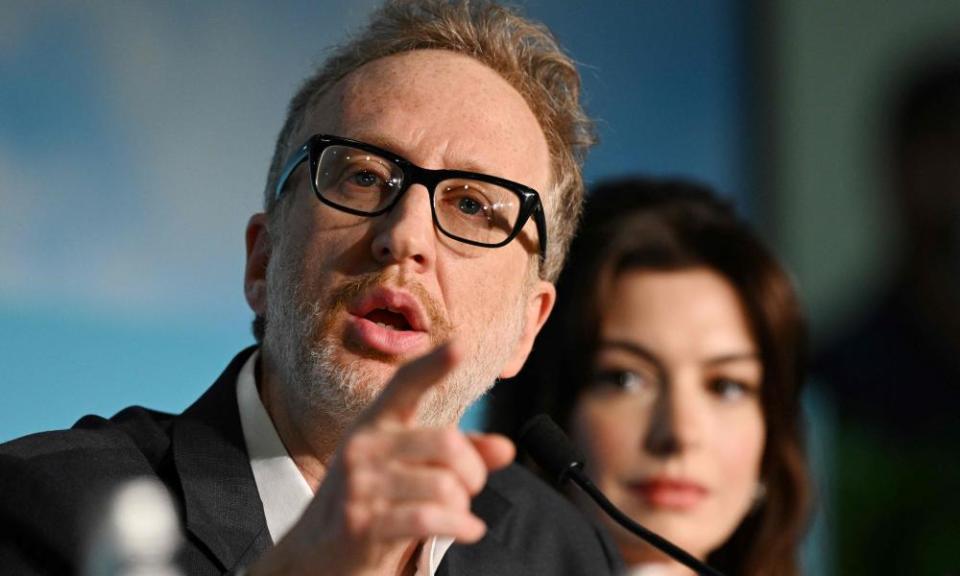Armageddon Time: film featuring Trump family is attack on capitalism, says maker
A new film set in 1980s New York, in which Donald Trump’s property mogul father, Fred, and high-achieving lawyer sister Maryanne appear as characters is a direct attack on late-stage capitalism, according to its principal cast and director.
Armageddon Time, which is premiering at the Cannes film festival and stars Succession’s Jeremy Strong alongside Oscar-winner Jessica Chastain as Maryanne Trump, in a cameo, is set during the run-up to the election of Ronald Reagan as president and examines the layers of privilege that determine the future of children attending different schools in the same city.

Its writer-director, James Gray, said: “I think we are in serious trouble. History is very complex, but there are inflection points every few years and this moment in the 1980s was one of them.
“Those children at the private school are going to run everything and they know it,” said Gray. “There is something ossified about a system that keeps the same people at the top. Why don’t we look at this system that requires a level of oppression to operate? I was trying to show the layers of that system and of that idea of privilege.”
Strong, who plays aspiring global magnate Kendall Roy in Succession, said it was possible to “find the genome” for “terminal decadence in the United States” in the film.
“You can find a thread connecting these two worlds,” said the actor, who plays a version of Gray’s angry, working-class father in Armageddon Time. “Succession didn’t exist for me while I was in the world of this film, but it is true that the fault lines that we see beginning to crack in this story have widened and become the political and social divisions that we see now.”
While Armageddon Time focuses chiefly on the hopes of members of a struggling Jewish family, the broader story depicts the period of American politics that Gray believes has led to the racism, inequality and confused morality of today.
The director was 12 at the time his film is set. As a fan of Muhammad Ali and the Beatles, the election of Reagan in 1980 came in the same period as a boxing ring defeat for Ali to Leon Spinks, the shooting of John Lennon in Manhattan and the renewed threat of nuclear conflict. The birth of the dominance of the market economy, coupled with the end of the adventurous “new Hollywood” films that Gray loves, did not help either, he said.
“How did we get here?” the director wondered. “With everything owned by two people and a bunch of authoritarians who are trying to take over the planet? Children today don’t even understand the phrase ‘a sell-out’, they think it just means there are no tickets left.”
He bemoaned the importance of film franchises in the entertainment industry and spoke of the enduring influence of white privilege in America, although he said he wrote the script of Armageddon Time before the death of George Floyd and the resurgence of the Black Lives Matter movement.
Young actor Jaylin Webb plays a poor black schoolboy in the film, a character with no resources to call upon when he is confronted with prejudice and disadvantage. “Luckily I never got to experience what Johnny got to experience growing up,” he said.
Anne Hathaway, who plays Esther Graff, a character based on Gray’s own mother, said she had been inspired by her own late mother-in-law’s warmth when creating her portrayal.
Related: Armageddon Time review – Hopkins and Hathaway can’t save this stagy tale of a quasi-Trump
“Who wouldn’t be honoured to play a Jewish mother?” the actor said, holding back tears. “My husband is Jewish. We talked about what it would mean for our family to take this role.”
Gray said an old friend had recently advised him not to read newspapers or watch the news if he wanted to improve his mood, but said this was not an option for him.
“Things do weigh upon me,” he said, “but if you are a creative person you can’t divorce yourself from the world. I have no idea how to solve issues of inequality, so you have to put it out in front of the audience. I don’t think it is my job to have an answer. As artists, we are here to pose questions.”

 Yahoo Movies
Yahoo Movies 